第88章
Diccon and I were placed in the same canoe. We were not bound: what need of bonds, when we had no friend nearer than the Powhatan, and when Uttamussac was so near? After a time the paddles were put into our hands, and we were required to row while our captors rested. There was no use in sulkiness; we laughed as at some huge jest, and bent to the task with a will that sent our canoe well in advance of its mate. Diccon burst into an old song that we had sung in the Low Countries, by camp fires, on the march, before the battle. The forest echoed to the loud and warlike tune, and a multitude of birds rose startled from the trees upon the bank. The Indians frowned, and one in the boat behind called out to strike the singer upon the mouth; but the werowance shook his head. There were none upon that river who might not know that the Paspaheghs journeyed to Uttamussac with prisoners in their midst. Diccon sang on, his head thrown back, the old bold laugh in his eyes. When he came to the chorus I joined my voice to his, and the woodland rang to the song. A psalm had better befitted our lips than those rude and vaunting words, seeing that we should never sing again upon this earth; but at least we sang bravely and gayly, with minds that were reasonably quiet.
The sun dropped low in the heavens, and the trees cast shadows across the water. The Paspaheghs now began to recount the entertainment they meant to offer us in the morning. All those tortures that they were wont to practice with hellish ingenuity they told over, slowly and tauntingly, watching to see a lip whiten or an eyelid quiver. They boasted that they would make women of us at the stake. At all events, they made not women of us beforehand.
We laughed as we rowed, and Diccon whistled to the leaping fish, and the fish-hawk, and the otter lying along a fallen tree beneath the bank.
The sunset came, and the river lay beneath the colored clouds like molten gold, with the gaunt forest black upon either hand. From the lifted paddles the water showered in golden drops. The wind died away, and with it all noises, and a dank stillness settled upon the flood and upon the endless forest. We were nearing Uttamussac, and the Indians rowed quietly, with bent heads and fearful glances; for Okee brooded over this place, and he might be angry. It grew colder and stiller, but the light dwelt in the heavens, and was reflected in the bosom of the river. The trees upon the southern bank were all pines; as if they had been carved from black stone they stood rigid against the saffron sky. Presently, back from the shore, there rose before us a few small hills, treeless, but covered with some low, dark growth. The one that stood the highest bore upon its crest three black houses shaped like coffins.
Behind them was the deep yellow of the sunset.
An Indian rowing in the second canoe commenced a chant or prayer to Okee. The notes were low and broken, unutterably wild and melancholy. One by one his fellows took up the strain; it swelled higher, louder, and sterner, became a deafening cry, then ceased abruptly, making the stillness that followed like death itself. Both canoes swung round from the middle stream and made for the bank. When the boats had slipped from the stripe of gold into the inky shadow of the pines, the Paspaheghs began to divest themselves of this or that which they conceived Okee might desire to possess. One flung into the stream a handful of copper links, another the chaplet of feathers from his head, a third a bracelet of blue beads. The werowance drew out the arrows from a gaudily painted and beaded quiver, stuck them into his belt, and dropped the quiver into the water.
We landed, dragging the canoes into a covert of overhanging bushes and fastening them there; then struck through the pines toward the rising ground, and presently came to a large village, with many long huts, and a great central lodge where dwelt the emperors when they came to Uttamussac. It was vacant now, Opechancanough being no man knew where.
When the usual stately welcome had been extended to the Paspaheghs, and when they had returned as stately thanks, the werowance began a harangue for which I furnished the matter.
When he ceased to speak a great acclamation and tumult arose, and I thought they would scarce wait for the morrow. But it was late, and their werowance and conjurer restrained them. In the end the men drew off, aud the yelling of the children and the passionate cries of the women, importunate for vengeance, were stilled. A guard was placed around the vacant lodge, and we two Englishmen were taken within and bound down to great logs, such as the Indians use to roll against their doors when they go from home.
There was revelry in the village; for hours after the night came, everywhere were bright firelight and the rise and fall of laughter and song. The voices of the women were musical, tender, and plaintive, and yet they waited for the morrow as for a gala day. I thought of a woman who used to sing, softly and sweetly, in the twilight at Weyanoke, in the firelight at the minister's house. At last the noises ceased, the light died away, and the village slept beneath a heaven that seemed somewhat deaf and blind.